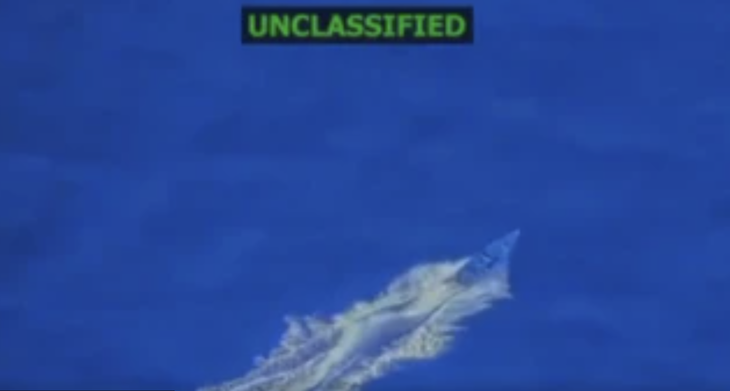There are plenty of accusations you could level at Venezuelan dictator Nicolás Maduro, the ex-union leader and bus driver, whose corruption and incompetence is steering the economy of his oil-rich Latin American nation off a cliff. But responsibility for America’s lethal drug habit is not one of them. That hasn’t stopped Donald Trump trying, however.
‘We smoked a drug boat, and there’s 11 narco-terrorists at the bottom of the ocean,’ Hegseth bragged
Thus, we’ve seen Trump’s doltish ‘Secretary of War’ Pete Hegseth gleefully bombing small Venezuelan boats that he claims were carrying drug smugglers.
‘We smoked a drug boat, and there’s 11 narco-terrorists at the bottom of the ocean,’ Hegseth bragged after the first sinking on 3 September. He failed to offer any evidence there were drugs or smugglers onboard. Military law experts note that even if the boat’s occupants were guilty as charged, that did not make them terrorists. US special forces have since sunk another seven vessels.
Quite apart from the dubious legality and ethics of the campaign, it won’t make a bit of difference in America’s disastrous and unending war on drugs. The proportion of narcotics entering the US via Venezuela is relatively tiny.
The small boat sunk off the Venezuelan coast probably wasn’t carrying fentanyl to the United States, as Trump claims, anyway. Fentanyl typically arrives in the US by land from Mexico. Its precursors are made in China. Will US special forces be attacking chemical factories in China? Presumably not.
The Trump administration knows all this. It might be looking for any pretext to attempt regime change in Venezuela; US war ships are piling into the Caribbean. But Trump is also stepping up verbal attacks on America’s regional ally Colombia. A shared interest in tackling drug smuggling and related crime is less important in Trump’s eyes than the left-wing complexion of the current Colombian government and its unwillingness to kowtow to his diktats.
Yes, Colombian cocaine production is currently near record-high levels. Colombia is no more to blame for America’s drug problem, however, than Venezuela – or Peru, or Mexico, or the new trafficking hotspot Ecuador. America is to blame.
America pays for the drugs. America consumes them. And America funds the obscene profits that ensure criminals will do anything to continue the trade.
By establishing the biggest black market for drugs in the world – effectively a second, but far more devastating period of prohibition, the US has become an insatiable and uncontrolled consumer, largely beyond the reach of taxation, health or social services. The profits in this half-a-trillion-dollar a year trade are too vast for any deterrent to have effect. America’s use and dependency rates are the worst in the world, even though its treatment of drug offenders is among the most draconian.
Tackling the drugs trade by blocking supply rather than curtailing demand is hopeless. The calamitous 50-year-old War on Drugs proves it. What’s surprising is that so many conservative politicians are ready to ignore Margaret Thatcher’s old adage, ‘you cannot buck the market’.
Paul Glastris, a former special assistant to Bill Clinton, wrote of the history of Colombian cocaine trafficking this week, ‘when we pushed them out of general aviation into South Florida, they started flying into the Bahamas and other Caribbean nations. When we pushed them out of the air there, they started flying, working their way up into Mexico, and then using maritime.’ The profits dictate that they’ll find a way.
A look at the trail of death and destruction shows the status quo is not working
The US will, like other western countries, have to tackle demand by treating drug abuse as a public health problem and not as the sole prerogative of criminal justice.
Portugal has shown the benefits of decriminalisation. In 2001, Lisbon struck personal possession of all drugs from its penal code in a reorientation toward a health-led drugs policy. It slashed overdose deaths, which remain well below the EU average to this day.
The US state of Oregon took note. In 2021, it introduced a decriminalisation policy of its own. This was seen as a complete failure, with recorded increases in drug use, and overdoses. Supporters suggest, however, the Oregon experiment, in which organisers had only 90 days in the midst of the Covid epidemic to configure new rehabilitation services, was doomed from the start. Portugal had spent years planning its initiative.
Even critics of the Oregon experiment, such as drug policy expert, Kevin Sabet, say shifting addicts away from the criminal justice system – effectively a degree of decriminalisation – is vital for cutting dependency rates.
Some fear decriminalisation, in the sense of ending criminal penalties for drug use, is a slippery slope that leads to complete legalisation – i.e. allowing the sale of drugs. In response, libertarians would ask how you tackle the global crime wave associated with illegal drugs without dismantling the black market that fuels it. After all, from shanty towns in Ecuador, to Los Angeles housing projects and shabby council estates in provincial England, young people on the periphery of the drugs trade are shooting or hacking each other, and not a few innocents, to pieces. These lives are sacrificed on the altar of something criminally illiberal: the principle that members of the public should not be forced to exercise personal responsibility over whether or not they choose to imbibe, inject or snort something they know is potentially harmful.
That debate will continue. But a look at the trail of death and destruction – and the obscene cost of the failed War on Drugs (the US has spent over $1 trillion (£750 billion) since 1971) – shows the status quo is not working.
After Joe Biden’s administration began to place more emphasis on treatment and prevention, illegal drugs overdoses have started to fall since 2023. But the social cost of drug use from crime and ill health in the US remains appallingly high. There is much to do.
But don’t blame Latin American dictators for that. The route to tackling the drug disaster in America – like anywhere else – begins at home with difficult decisions. For once, the wretched Maduro would hold the moral high ground if he said: ‘America heal thyself.’






Comments